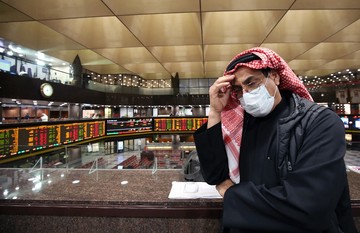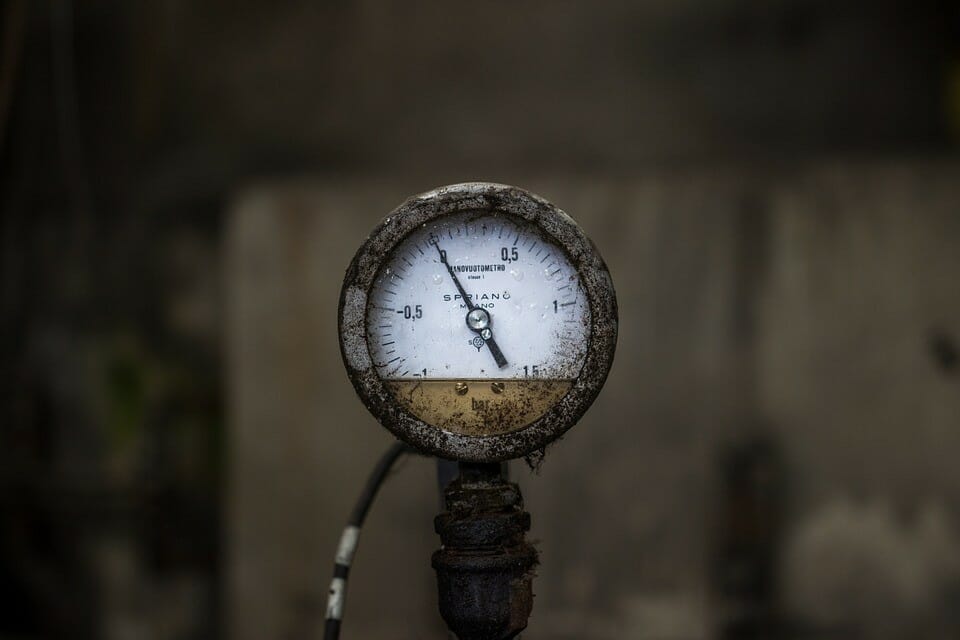Oil Price War & COVID-19 Economic Impact
GineersNow talks to Columbia University, Oxford Economics and The Institute of Chartered Accountants in England and Wales regarding the perfect storm in the Middle East, and how it will affect the global economy.
The slow economic activity, coronavirus and oil price war between Russia and Saudi Arabia will result to cheaper price which will benefit the Asian consumers, but will derail the small-to-medium petroleum companies around the world.
The Middle East economy will see a sharp slowdown in the first half of 2020, despite stimulus packages and monetary rate cuts to soften the economic blow of the coronavirus outbreak. According to ICAEW’s latest Economic Update, the Middle East economy is expected to see a pickup in the second half of 2020, when both demand and supply-side disruptions fade. This should see GDP growth of 1.0%, an increase from the 0.2% growth in 2019 – however, still down from previously forecasted figures.

ICAEW & Oxford Economics Analysis: Petroleum & COVID-19 economic impact
COVID-19 economic impact brings Middle East economies to temporary standstill. This will result to small petroleum companies to close down from Malaysia to Nigeria to Canada.
Economic Update: Middle East Q1 2020, produced in partnership by ICAEW and Oxford Economics, reports that higher oil production in Saudi Arabia and the UAE will boost the GCC’s GDP growth to 2.6% this year. However, the steep decline in oil prices will lead to fiscal adjustments to contain budgetary deficits – dragging down non-oil economies, reinforcing headwinds from the coronavirus and escalating pressure on diversification efforts. This will, in turn, lead to growth in GCC non-oil activity grinding to a halt in 2020.
Oil price drop & COVID-19 economic impact
According to the report, the impact of the coronavirus sent shockwaves across the oil market, driving oil prices down. However, contrary to expectations of further supply cuts, Saudi Arabia and Russia announced their decision to hike oil production as the OPEC+ alliance faltered on 5 March. This move worsened the supply glut, as demand for oil had already weakened substantially and saw Brent crude prices tumbling further to below $30per barrel. The report says that Brent is set to average at $38.5/b in 2020 – 40% lower than 2019 – and increase to $46/b in 2021.

The region has employed similar measures to the rest of the world to contain the spread of the coronavirus, with varying severity of restrictions. Current limitations include travel bans, closure of most public venues; including schools, and a halt to some industrial activities.
Mindful of the impact of the isolation and semi-shutdown of the economy, regional authorities have followed the lead of other countries and taken steps to support demand. For example, Gulf central banks, whose currencies are pegged to the US dollar (with the exception of Kuwait) have slashed the cost of borrowing. Conventional monetary policy easing is being combined with stimulus packages to minimise the damage caused by the coronavirus outbreak. Measures include additional liquidity, custom duty exemptions, rent relief, loan deferment, lower utility charges and credit guarantees for SMEs.
Despite such measures, countries like the UAE and Bahrain, where travel and tourism have become a mainstay of the non-oil economy, are facing a recession in their non-oil economies. With supply chains facing disruption, travel restricted, and events cancelled due to the virus outbreak, this will weigh on the performance of the broader economy.
Michael Armstrong, FCA and ICAEW Regional Director for the Middle East, Africa and South Asia (MEASA), said: “2020 is certainly going to be a challenging year for economies, both globally and regionally, due to the oil price drop, COVID-19 economic impact and the unprecedented national response efforts countries are having to implement. Although we are pleased to see Middle East governments put in place the necessary fiscal reforms to soften the economic blow of the virus, growth prospects have deteriorated significantly.
“The continued uncertainty in the global oil market has put more pressure than ever before on Middle East economies that are heavily reliant on oil to increase their non-oil revenues. This is a most challenging task in these times, but governments in the region must remain proactive and continue to support their economies with pro-growth initiatives in order for them to bounce back quickly.”
Columbia University Center on Global Energy Policy: Oil & COVID-19 economic impact
The oil price collapse triggered by the end of Saudi-Russian cooperation earlier this month will deliver significant benefits for China’s economy, according to Dr. Erica Downs, Antoine Halff, David Sandalow, Erin Blanton from Columbia CGEP. As the world’s largest net oil importer, China stands to benefit from a substantial drop in its oil import bill. However, coronavirus-related restrictions on economic activities in China and around the world, as well as the $40 per barrel floor under domestic fuel prices, may limit the extent to which lower oil prices stimulate economic growth.
The price collapse is a mixed bag for China’s oil industry. It provides an opportunity for refiners to profit from the difference between higher state-set fuel prices and lower international crude prices (when crude trades below $40); increase product exports and consolidate China’s role as a regional refining hub; and—depending on the amount of available crude oil storage capacity in China—stock up on cheap crude to sell at a profit when oil prices recover. However, lower for longer oil prices will make it more challenging for China’s oil producers to increase China’s oil and natural gas output and may force China’s NOCs to choose between bolstering production or their bottom lines.

That said, the oil price collapse is not all bad news for China’s energy security. China benefits from the ongoing competition between its two largest crude suppliers: Russia and Saudi Arabia. In addition, a sustained period of low oil prices would provide China with the opportunity to meet more of its future import requirements with cheaper LNG, reducing reliance on Russian and Central Asian gas exporters.
Lower oil prices will have only modest impacts on Chinese emissions and pollution levels. On the plus side, lower oil prices support Beijing’s policy of converting heating in northern China from coal to natural gas (since natural gas prices are often tied oil prices). On the minus side, lower oil prices may somewhat slow the development of China’s EV industry and increase purchases of larger, more-polluting SUVs.
Finally, the oil price collapse will make the energy purchase targets in the Phase 1 US-China trade deal more challenging for China to achieve. Those targets were unlikely to be met in any event, and the combination of the Covid-19 economic impact and oil price collapse may provide both countries with a face-saving way to explain the failure to deliver on the energy purchase terms of that agreement.
Watch Live Stream & Real Time Statistics of COVID-19
Other COVID-19 Updates
Tiger Tests Positive for Coronavirus at New York Zoo
Harvard Talks: Cut Salaries or Cut People?
Lamborghini Medical Shields & Surgical Masks for Health Workers
WHO COVID-19 Buildings & Tents Screening Layout Standards
UCLA Engineer Made a Ventilator from Hardware Items
Airbus Gives 3D-Printed Hospital Visors to Health Workers
Airlines COVID-19 Analysis: Aviation Collapsed
Forecast Deaths, Hospitals & Ventilators: COVID-19 Impact, USA Full Report
Ventilation Standards for Buildings Converted to COVID-19 Hospitals
Harvard Talks: The Supply Chain in Post COVID-19 Era
COVID-19 Deaths to Reach 81,000 in US By June – Forecasts by IHME & Univ. of Washington
Top 10 Largest Ventilator Manufacturers in the World
List of Government Officials Tested Positive in PH
Metronic Ventilator Ramping Up Production
Engineers, Can You Help Build a DIY Ventilator for Hospitals?
Water is Our First Line of Defense Against COVID-19
COVID-19 Economic Aftermath on the Construction Industry
Complete List of Companies Working on Coronavirus Vaccine
COVID-19 War: 70K Physicians vs 109M Filipinos
Famous People Who Have Tested Positive for COVID-19
These Politicians Tested Positive for Coronavirus (COVID-19)
Postponed Exhibitions in the Philippines due to COVID-19
Cancelled Major Events Around the World Due to COVID-19
World Bank Gives $12 Billion to COVID-19 Affected Countries
COVID-19 Philippines: DOH on Code Red Status
PPE Shortage Endangering Health Workers Worldwide
The List of COVID-19 Disinfectants Approved by EPA
World Bank Gives $12 Billion to COVID-19 Affected Countries
Air Cargo Demand Down 3.3% due to COVID-19 Disruption


























